( English version at the bottom of the page )
Le PZL TS-11 Iskra est un avion d'entraînement polonais , utilisé par l'armée de l'air et la marine polonaises.
C'est l'avion de formateur le plus utilisé de l'armée polonaise , le plus ancien avion à réaction encore en service en Pologne , mais aussi l'un des plus fiables .
En 1957, l'armée de l'air polonaise demanda un avion d'entraînement à réaction, afin de remplacer le TS-8 et d'assurer la transition sur les avions de combat à réaction .
L'appareil fut conçu par Tadeusz Soltyk , d'où les initiales TS . Une maquette présentée en 1958 reçut l'aval de l'armée de l'air polonaise. 4 prototypes furent
construits, dont le premier, 01, était destiné aux essais statiques . Le prototype 02, propulsé par un Viper 8 de 795 kgp , effectua son vol inaugural
le 5 février 1960 aux mains d'Andrzej Ablamowicz. Il fut présenté le 11 septembre aux autorités et déclaré satisfaisant , ouvrant la voie à la production en série .
Il fut suivi par 2 autres prototypes , propulsés par des copies polonaises du Viper, les WSK HO-10. Ils prirent l'air respectivement en mars et juillet 1961.
Ils devaient à l'origine être propulsé par le moteur national SO-1 de 1000 kgp , mais celui-ci rencontrait des difficultés de mise au point.
Le TS-11 fut le premier avion à réaction conçu en Pologne . Sa construction était entièrement métallique et il se distinguait par une aile en diamant.
L'appareil est monoréacteur, à ailes basses, avec des entrées d'air situées dans l'emplanture des ailes . La tuyère est placée sous la queue de l'appareil .
En août 1961, il fut évincé par le L-29 tchécoslovaque dans la compétition visant à définir l'avion d'entraînement avancé standard du pacte de Varsovie.
-Touche 1 : Moteur .
-Touche 2 : Feux de positions .
-Touche 4 : Feux d'atterrissage .
-Trim : trim .
-Vtol : volet .
English version :
The PZL TS-11 Iskra is a Polish training plane, used by the Polish Air Force and Navy.
It is the most used trainer aircraft of the Polish army, the oldest jet plane still in use in Poland, but also one of the most reliable.
In 1957, the Polish Air Force requested a jet trainer to replace the TS-8 and transition to jet fighters.
The device was designed by Tadeusz Soltyk, hence the initials TS. A model presented in 1958 was approved by the Polish Air Force. 4 prototypes were
the first, 01, was intended for static testing. Prototype 02, powered by a Viper 8 of 795 kgp, made its maiden flight
on 5 February 1960 at the hands of Andrzej Ablamowicz. It was presented on September 11 to the authorities and declared satisfactory, paving the way for mass production.
It was followed by two other prototypes, propelled by Polish copies of the Viper, the WSK HO-10. They took the air respectively in March and July 1961.
They originally had to be powered by the national SO-1 engine of 1000 kgp, but this one had difficulties of development.
The TS-11 was the first jet plane designed in Poland. Its construction was entirely metallic and it was distinguished by a diamond wing.
The aircraft is a single-jet, low-wing aircraft, with air intakes located in the root of the wings. The nozzle is placed under the tail of the device.
In August 1961, he was ousted by Czechoslovak L-29 in the competition to define the standard advanced training aircraft of the Warsaw Pact.
-Key 1: Engine.
-Key 2: Position lights.
-Key 4: Landing lights.
-Trim: trim.
-Vtol: component.
Specifications
General Characteristics
- Successors 1 airplane(s)
- Created On Windows
- Wingspan 29.5ft (9.0m)
- Length 28.8ft (8.8m)
- Height 9.5ft (2.9m)
- Empty Weight 6,382lbs (2,895kg)
- Loaded Weight 9,978lbs (4,526kg)
Performance
- Power/Weight Ratio 2.252
- Wing Loading 70.8lbs/ft2 (345.7kg/m2)
- Wing Area 140.9ft2 (13.1m2)
- Drag Points 3640
Parts
- Number of Parts 144
- Control Surfaces 9
- Performance Cost 557
Required Mods
-
Variable fuselage
by MOPCKOE_DNISHE
Version 1.0 (7/8/2019 1:45:15 PM)

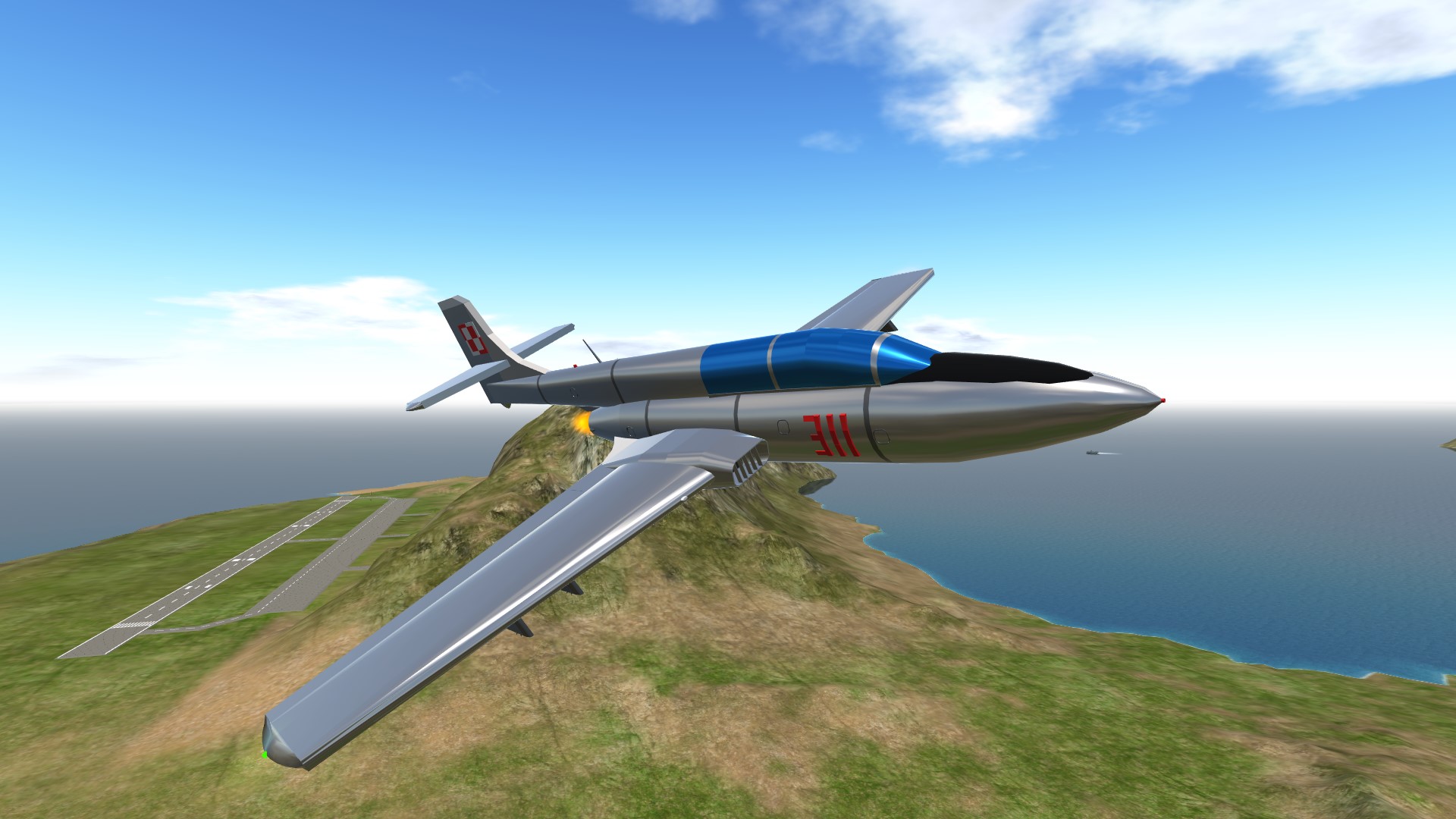
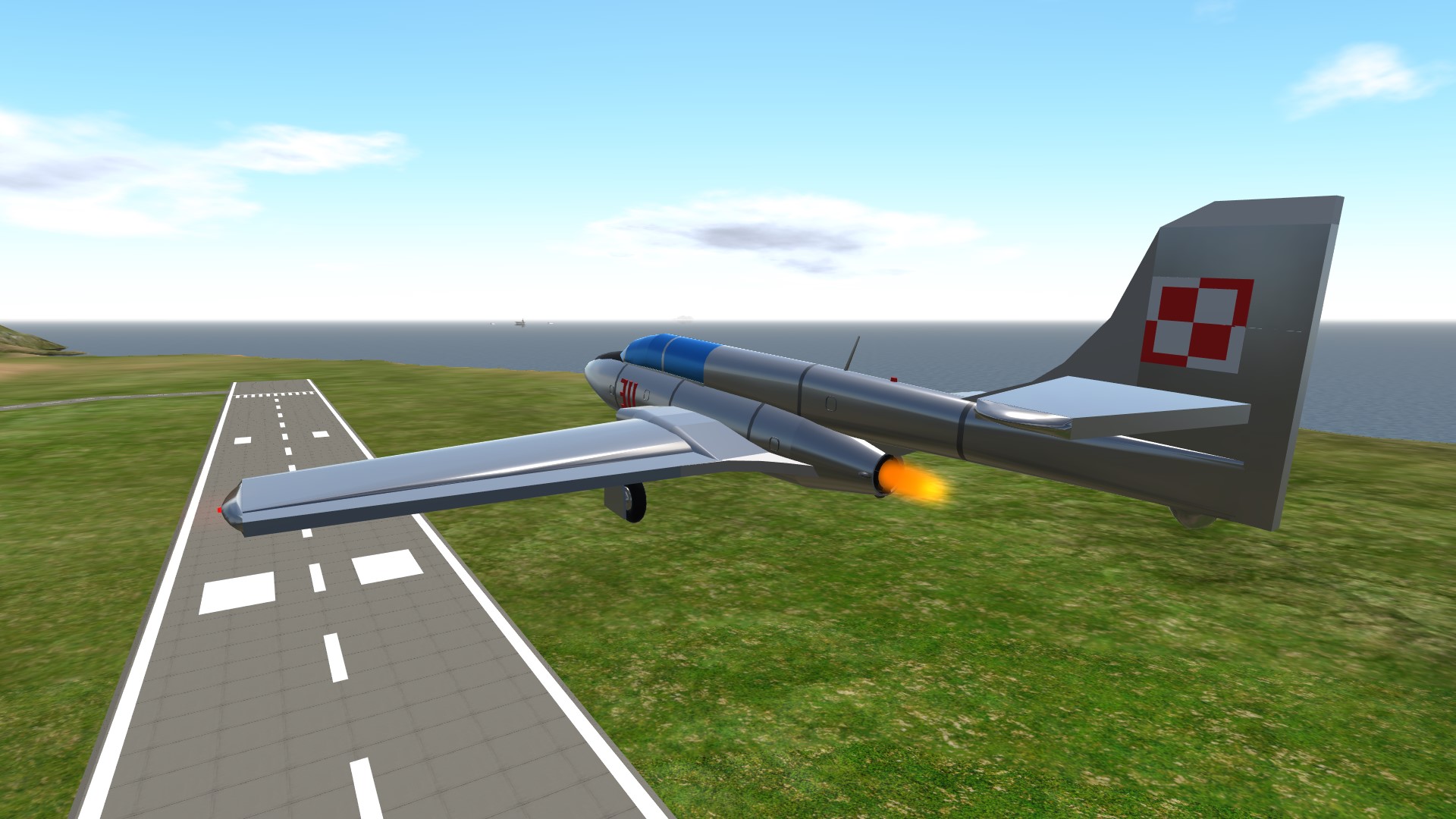
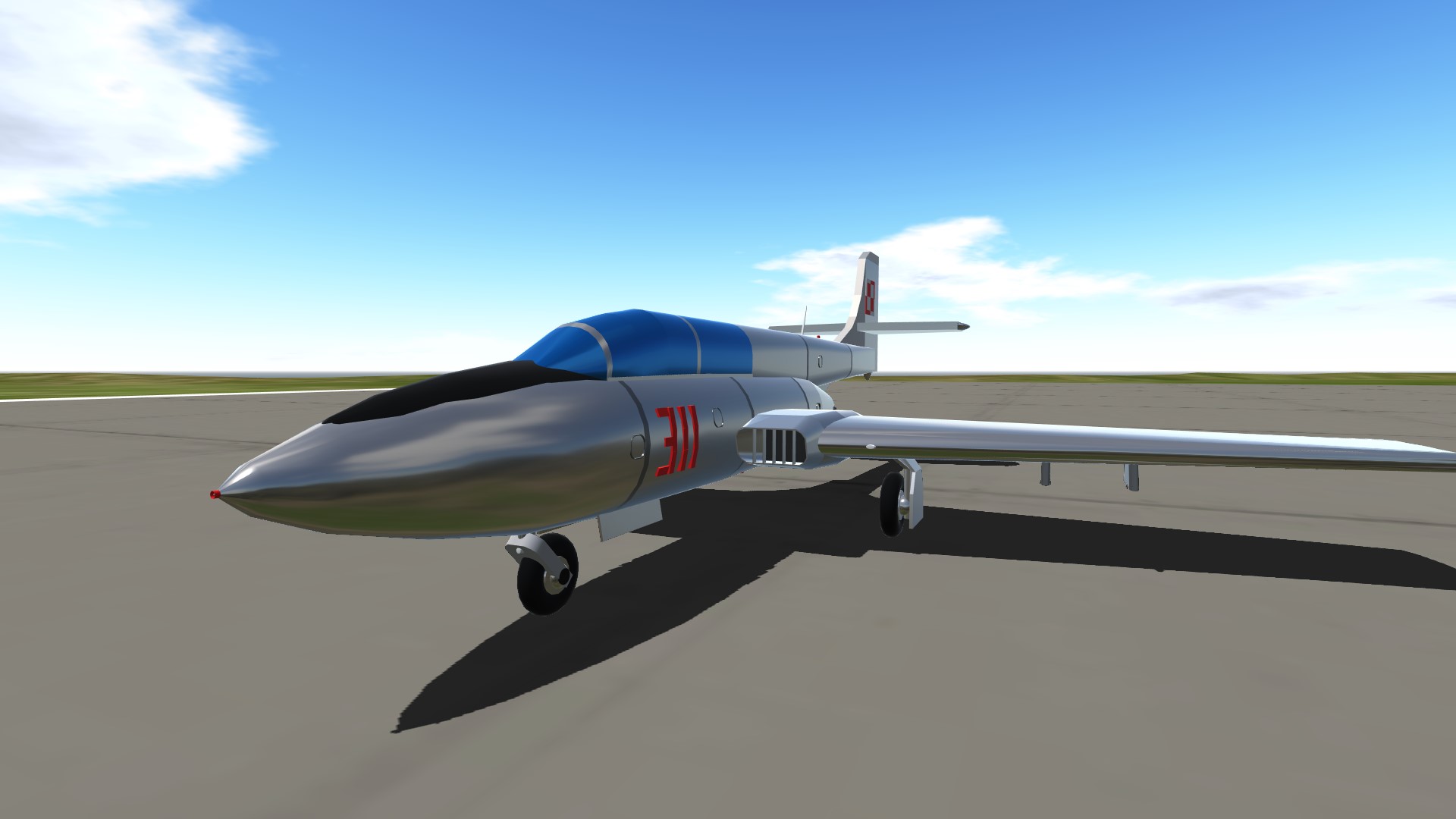
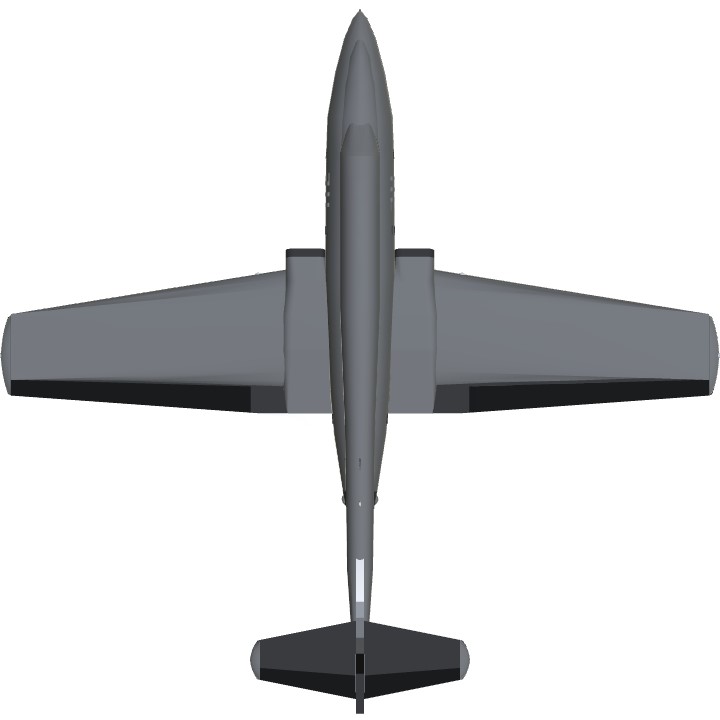
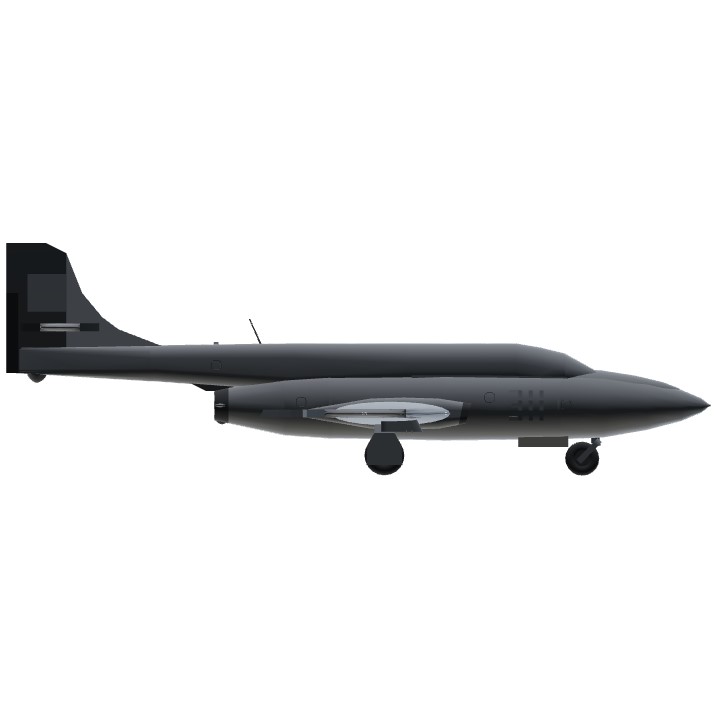
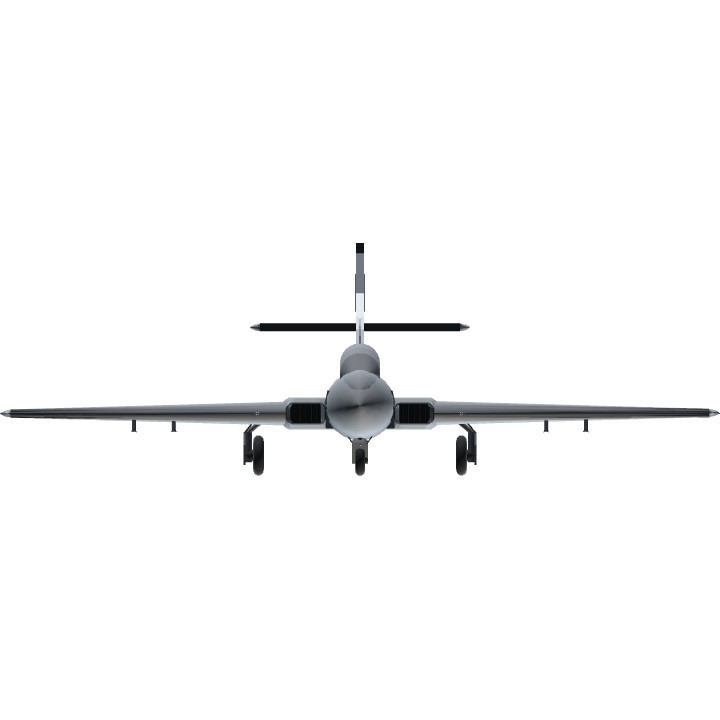
@XEPOH , Thanks for your upvote .
Wow thanks for that!
@Mustang51 , I will redo a version without mod .
@Trainzo i just realised that the version I download isn’t the same as the one in the photo (probably because I cannot download mods on my phone). That explains why it looks so weird on my phone hahaha
@Mustang51 , Thank you for your multiples votes . Thanks also for your opinion . It is really very interresing .
This too is a fantastic build of yours! It’s one of my favourite of the early Cold War Aircraft because of how unique it looks like. The only thing I would change on this build is the way the tail is. The real one isn’t quick so squared off but nonetheless, it’s really good!
@SanitaterAirlines , thank for your upvote and your comment .
Votre avion est incroyable!
@Trainzo Np!
@Bife , thank for your upvote .
No problem. @Trainzo
@Tarquez , thank for your comment .
@TheFantasticTyphoon , @TheBlueRobotProduct , @Tarquez , thanks for yours upvotes
Tres belle!
@otayahiromo8211 , @TheFantasticTyphoon , thanks for yours upvotes .
@KerlonceauxIndustries , @AircraftoftheRedStar , @Zott , thanks for yours upvotes .
@Baldeagle086 , thank for your upvote .
@Trainzo No problemo
@Gameboi14 , thank for your upvote and your comment .
@Viper3000ad , thank for your comment .
@Evenstsrike333 , thank for your comment .
What a cool way to use the variable fuselage
Np! @Trainzo
I just google translated the entire page.
@Trainzo it's a cool plane, what else would I do?